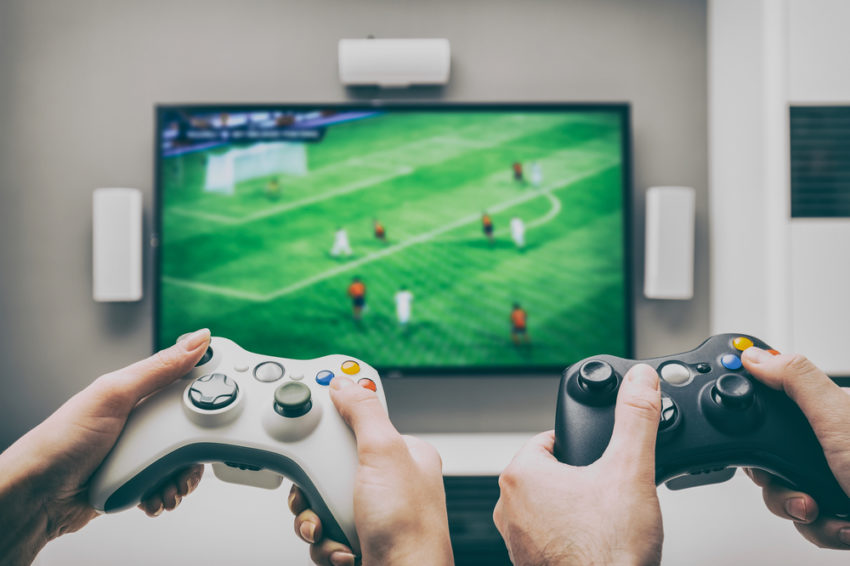When my kids, ages eleven and eight, bang through the rear door once school, generally the first issue out of their mouths is: “Mom! can we’ve a bent to play Prodigy?” when a quick mental calculation of masses of|what proportion|what quantity} screen time they’ve already had for the week so the manoeuvre exuberant peace and quiet i’d would love to end my work, I assent. After all, Prodigy is to boot a role-playing game that encourages kids to look at science facts. It’s tutorial. although video games unit of activity additional and additional making their manner into lecture rooms, scientists administrative unit study them say the information unit of activity lacking on whether or not or not or not or not they’ll very improve learning — and most agree that lecturers still beat out games altogether but variety of circumstances. however there is growing proof that some types of video games might improve brain performance on a slender set of tasks. typically|this can be} this will be usually all told likelihood good news for varsity youngsters, however as for the numerous of us that may prefer to play, or a minimum of can’t seem to stop enjoying (see infographic). “There is to boot several proof that people — and not merely adolescents — pay numerous it slow enjoying games on their screens,” says Richard Mayer, associate education discipline individual at the University of CA, town. “If we’ve a bent to may flip that into one issue heaps of productive, which may be a worthy issue to undertake to to.” in a very statement at intervals the 2019 Annual Review of discipline, Mayer get being to guage rigorous experiments that tested what people can learn from games. though he’s not entirely convinced of games’ tutorial potential, some studies did advocate that games unit aiming to be effective in teaching a second language, science and science. The hope, he says, is to figure out the way to harness any brain-boosting potential for higher area results. Your brain on games a number of the first proof that play might train the brain came from first-person shooter games. That these oft-maligned games may even have edges was initial stumbled upon by associate student learning discipline at the University of Rochester in the big apple. C. creator inexperienced gave his friends a check of visual attention, and their scores were off the charts. He and his analysis supervisor, Daphné Bavelier, thought there ought to ar a bug in his cryptography of the check. but once Bavelier took the check, she scored at intervals the standard vary. the excellence was that Green’s friends had all been devoting quite 10 hours per week to Team defence Classic, a first-person shooter version of capture the flag. inexperienced and Bavelier then strictly retested the construct with of us that were unaccustomed play. they’d a mix of groups train on differing kinds of games: One cluster practiced a first-person shooter action game for one hour per day for 10 days, so the choice spent identical amount of it slow on Tetris, a abstraction puzzle game. The new action gamers were significantly higher at that specialize in targets of interest throughout a untidy, visually shouting field compared with the Tetris players. The team to boot found that the action gamers, on average, may consistently track five moving objects throughout a field of regard, compared with the three that non-gamers may track. Bavelier, presently an individual of science at the University of Geneva in state, says that action gamers unit of activity higher ready to switch their visual attention between distributed attention (scanning Associate in Nursing outsize area for a specific object) and targeted attention (extracting specific facts from a video). “This is termed basic data management, the malleability to flexibly switch attention as time demands,” she says. although it’s not however clear if up this sort of attention can facilitate kids at intervals the space, Bavelier says, she’s aiming to see the potential for games to help inspire students adding slightly of “chocolate” to the tutorial mix. Green, presently a psychological feature individual at the University of Wisconsin–Madison, admits that the benefits of enjoying hours upon hours of call of Duty might even be restricted in world. “There unit of activity some of us that have jobs with a necessity for multiplied visual attention,” he says, “such as surgeons, human activity or the military.” But, he notes, all games go beside an opportunity price. “If game time displaces assignment time, that’s in a very position to have a control on reading and science skills negatively.” In varied studies, researchers found that gamers administrative unit trained on Tetris were higher at mentally rotating two-dimensional shapes than of us that vie a bearing game. Students administrative unit vie a mix of hours of All you will be ready to E.T., a tutorial game designed to spice up the manager perform of shift between tasks, improved their focus-shifting skills compared with students administrative unit vie a word search game. Not astonishingly, the psychological feature skills that games can improve unit of activity of us that players end up active over and over throughout the course of play. these ability enhancements unit of activity very specific to the task at hand: First-person shooter games don’t improve mental rotation of objects, and Tetris doesn’t improve visual attention. And ironically, in assessing studies for his review, Mayer found no convincing proof that supposed brain-training games for healthy adults rather just like the suite of games succeed at up memory, attention or abstraction information. successive step is to figure out but these findings might translate to the space, where video games unit of activity already making in-roads. many students might gain advantage from associate improvement at intervals the ability to flexibly shift their attention once needed. And though first-person shooter games do not appear to be timely for , Bavelier says researchers have gotten higher at characteristic the core choices of video games that drive improved brain lightness.





